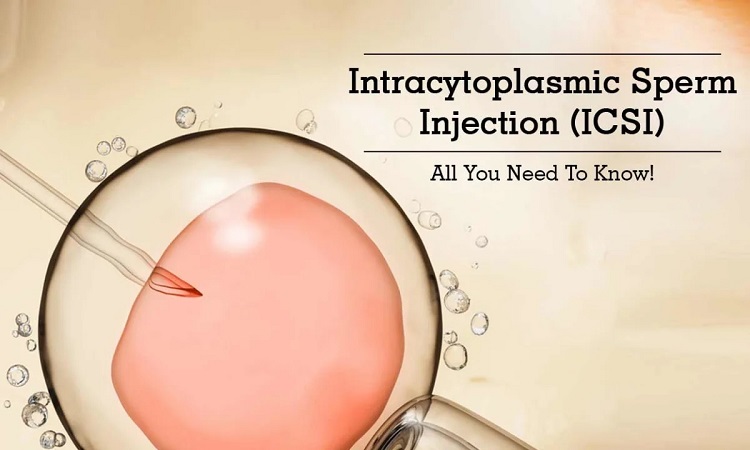All you need to know about Intracytoplasmic Sperm Injections (ICSI)

What is ICSI Treatment?
ICSI Treatment is Intracytoplasmic Sperm Injection. It is a kind of IVF treatment where lives perms are injected into a retrieved egg in a laboratory. The process is very likely to result in a successful pregnancy.
What is the procedure for ICSI Treatment?
Before ICSI
Induced Ovulation: The process begins with ‘induced ovulation. Here the person providing the eggs is given medication for a week or 14 days to encourage the formation of multiples and followed by the introduction of lupron to facilitate the maturation of the eggs for retrieval.
Egg Retrieval: The eggs are retrieved after the patient is under mild anesthesia to avoid discomfort during the procedure. Transvaginal ultrasound is conducted to guide the needle with the suction device through the vagina into the ovaries.
Sperm Collection: The ejaculation is collected in a lab provider container or the ejaculation is retrieved surgically in case of natural ejaculation can’t be attained and that is performed at a hospital and not the fertility clinic.
The egg retrieval and sperm collection take place on the same day.
During ICSI
Now as the contents are successfully obtained the ICSI can be performed:
- The retrieved egg is held in place with a pipet in a petri dish.
- A thin needle is used to immobilize sperm and held
- The needle is used to insert the sperm inside the cytoplasm of the egg
After ICSI
The egg is monitored for successful fertilization. Once successful fertilization occurs the cells divide to form a blastocyst, it is an initial step leading to a successful conception. Later the embryo transfer is done after about five or six days from egg retrieval. The embryo needs to be implanted inside the uterus for starting the pregnancy. It usually takes more than two weeks at least before you can expect a positive pregnancy test.
Benefits of the treatment
- It enables conception even from sperm obtained from those who underwent a vasectomy.
- There are typically fewer risks of a child developing physical or mental abnormalities. There are high-tech and very empathetic Maternity clinics at ICSI Ahmedabad.
When is it recommended?
The procedure is recommended in the case of:
- Male Infertility related issues like –
- Anejaculation .i.e. there’s no ejaculation during intercourse
- Poor sperm quality and count
- Retrograde Ejaculation. i.e. the urinary bladder as opposed to the penis as the exit point for the ejaculation
- The eggs are from a person above the age of 35
- Traditional IVF keeps on failing
- Previously frozen eggs and sperm are used
- Unexplained infertility
- Prevent a genetic disorder that was diagnosed in the individual providing the sperm
What are the risk and side effects?
ICSI in itself is a mild procedure but there are some quiet side effects and risks like any other medical procedure.
Damaged Embryos: During the ICSI procedure, some eggs and embryos may sustain damage.
Multiple Births: Your doctor may fertilize several eggs using ICSI to improve your chances of conceiving a healthy child. It’s possible to have twins, triplets, or more if you opt to implant more than one embryo. There is a larger likelihood of conceiving twins and an over 10 percent chance of conceiving triplets. The likelihood of various difficulties during childbirth and pregnancy such as hypertension, gestational diabetes, inadequate amniotic fluid levels, early labor, or the necessity for a cesarean section, increases when the mother is carrying multiples.
Birth defects: ICSI treatment marginally increases the incidence of birth abnormalities, however, they are still uncommon. Angelman syndrome, Beckwith-Wiedemann disorder, gendered chromosomal abnormalities, and hypospadias are a few congenital disorders linked to ICSI. A male offspring’s chance of experiencing reproductive problems also marginally rises. There is a possibility that infertility is transferred genetically.
With a typical pregnancy, there is a 1.5%–3% risk of a serious birth defect. ICSI treatment marginally increases the incidence of birth abnormalities, however, they are still uncommon.
Many doctors do not advise using ICSI with every IVF round because of these added risks. It makes sense when ICSI is a must to become pregnant. In that case, make sure to discuss the advantages and disadvantages of using the technology with your doctor. The specific person and their health state are determining factors in how well the surgery goes. Nevertheless, studies indicate over 25% of people can get pregnant after just one ICSI procedure.
Success Rate of the treatment
Let’s start by being sensible and realistic, so remember that no form of therapy has a 100% success rate. Although the sperm is put straight into the egg, there remains a chance that it won’t be fertilized.
After fertilization, the egg must attach to the uterine wall. At this moment, the success rates of IVF with and without ICSI are equal. All injected eggs have approximately 80% fertilization rates. Eight out of every ten eggs fertilize using the ICSI technique, on average.
My hectic lifestyle coupled with the quite stressful fertility journey was also because of the hassle of commuting to the Maternity Clinics until we found ICSI Treatment near me.
Conclusion
The fertility journey may feel isolating and overwhelming. Remind yourself to be compassionate with yourself by treating yourselves the very same way you would treat someone else experiencing similar circumstances. You deserve sympathy just as much as anyone else. Having full-proof research and the necessary research to mellow this harsh journey is all we are trying to provide. We wish you all the best and joy as you strive toward a healthy pregnancy.